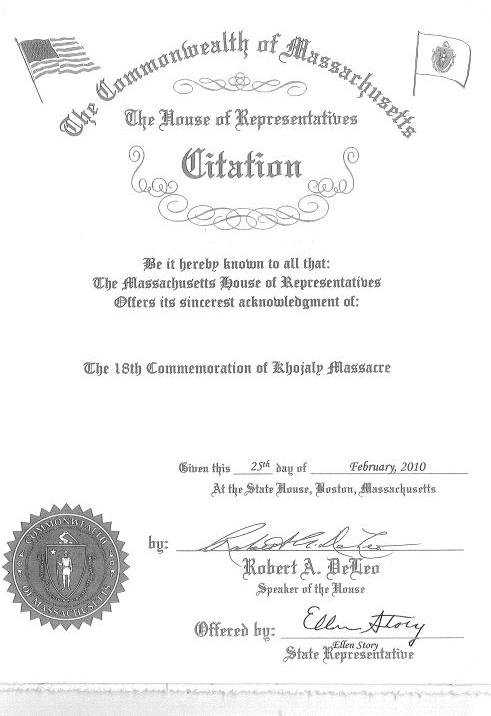In order to continue the “normalization” of Turkey-Armenia relations, it has become the major stipulation to bring the protocols signed in Zurich, Oct. 10, onto the agenda of the two parliaments.
There are reports that in the meetings held in Washington on April 12-13, Prime Minister Recep Erdoğan faced pressures to immediately bring the Zurich protocols onto the agenda of the Turkish Parliament. Some media outlets in the West and Turkey have strongly criticized Erdoğan for linking the “normalization” of Turkey-Armenia relations to the stipulation “to release Karabakh from occupation” and thus, “blocking up” the way of the process. While assessing from several aspects the stipulation “to release Karabakh from occupation” in the process of the “normalization” of Turkey-Armenia relations, we see that Prime Minister Erdoğan’s statement in the Azerbaijani parliament on May 13, 2009, is in line with the principles of the international law and human rights.
Armenia does not want the factor of “releasing Karabakh from occupation” to be put into circulation; because if this factor is put into circulation, Armenia will be constantly viewed as an “aggressor state” in the international arena. On the other hand, former president of Armenia Robert Kocharian and incumbent president Serge Sarkisian came to power in Yerevan with the dynamism caused by the wave of Karabakh’s occupation – having the stipulation “to release Karabakh from occupation” on the table in the discussions with Turkey means their admitting the stain of being an aggressor. Therefore, the present authorities of Armenia will not want to hold discussions by admitting the stipulation “to release Karabakh from occupation” – i.e. start the game with a score of 1-0.
In this respect, we should underscore that Prime Minister Erdoğan has taken the rather right step by including the stipulation “to release Karabakh from occupation” into the process of “normalization.” This “stipulation” has been put into the agenda because of the protest against the violation of international law and human rights in the region, not because of the loyalty to the principle “one nation, two states” between Turkey and Azerbaijan as stated by Armenia and the West. What could Erdoğan cite to while putting forward the stipulation “to release Karabakh from occupation” in Turkey-Armenia discussions, if not to the fact of the occupation of 20 percent of Azerbaijan’s territories and displacement of one million Karabakh residents of Azerbaijani origin? The solution to the regional conflicts requires divine justice: conscience and justice require it before the friendship and brotherhood between the countries.
Therefore, it is impossible to understand why some in the West, Armenia and Turkey have criticized Erdoğan for this “stipulation.” Which position seems more just: to release the occupied territories and send one million refugees to their native lands, or to ignore the displacement of one million people from their native lands and switch on the green lights for 146,000 Armenians in Nagorno-Karabakh to establish a monoethnic structure?
As soon as the issue on releasing the occupied Azerbaijani territories was brought into the agenda in Turkey-Armenia discussions, Armenian authorities led by Sarkisian tried to put into circulation “the right of Karabakh Armenians to self-determination.” If so, who will ensure the self-determination of one million Azerbaijanis that lost everything as a result of the occupation?
By putting into circulation “the right of Karabakh Armenians to self-determination” soon after the issue of “releasing of Karabakh” was included into the agenda in the process of “normalization,” Armenia is acting unfairly toward Azerbaijan, Turkey and the historical truths of the region.
The occupation of Azerbaijani regions adjacent to Nagorno-Karabakh by Armenia with the support of outside forces, posed threat to the peace processes in the region. Just after this occupation, Armenian and Azerbaijani intellectuals, who gathered to speak about peace late in the 80s and early in the 90s, were deprived of this opportunity. If we make an excursion into history we can see Azerbaijani poet Sabir, who realized that outside forces backed the misunderstanding between Armenians and Turks in 1905 in Karabakh, wrote a poem “Beynelmilel” (International).
Hovhannes Tumanyan, who did not want a contradiction between the two nations in Karabakh, visited the Armenian villages holding a white flag, explained the situation to the people and succeeded in calming down the situation. Outstanding Azerbaijani playwright Jafar Jabbarli depicted the background of those happenings in his play “1905-ci ilde” (In 1905).
Viewing the happenings from the historical perspective we see that the separatism in Nagorno Karabakh and occupation of 20 percent of Azerbaijani territories left no place for the intellectuals and politicians of the two countries to maneuver. Therefore, the Turkish prime minister’s inclusion of the stipulation “to release Karabakh from occupation” into the process of “normalization” of Turkish-Armenian relations becomes more important.
Actually, the foundation of the future national conflict was laid when a referendum was held by Stalin on July 7, 1923, for Armenian autonomy in Karabakh. The plebiscite was scheduled the same day for the Turks in Armenia’s Zengezur region to “realize their self-determination,” but the plebiscite was not held, and in 1948-1952 approximately 500,000 Azerbaijani Turks were deported from Armenia.
The process of Azerbaijanis’ deportation from Armenia took place in the Soviet Union, the “example of peoples’ friendship and brotherhood.” The last of the Azerbaijani Turks in Armenia was deported in March-June, 1988 – again during Soviet times. It was the last ring in Armenia’s turning into a monoethnic country.
The autonomy given to Nagorno-Karabakh in 1923 contained the maximal rights that the present autonomous regimes in the world may envy. They managed themselves; headed their parliament, the great majority of the state agencies were led by Armenians; they had representatives in Azerbaijani government; the persons, who represented them in the Soviet parliament, were Armenian; they had school, university, radio, TV channels, newspapers and magazines in their language; even the labels of the products made there were in Armenian.
With the rights of which autonomy can you compare the large rights of the Armenian population of Nagorno-Karabakh that was 120,000 approximately 25 years ago? We can see that “the right of Nagorno-Karabakh Armenians to self-determination” was the biggest injustice against Azerbaijan.
A question arises: if as claimed by Nagorno-Karabakh Armenians, they were indeed oppressed by Azerbaijan’s pressure in the autonomous province and passed a decision to unite with Armenia, can they show an example that during the 65-year autonomy an Armenian was injured on an ethnic basis?
It is inadmissible that in the international discussions Armenia showing “Nagorno-Karabakh’s right to self-determination” tries to force Azerbaijan to the referendum in the monoethnic Nagorno Karabakh region with a population of 146,000.
The question is not the “right of Nagorno-Karabakh Armenians to self-determination,” but the unification of a part of Azerbaijan to Armenia by occupation. Therefore, Prime Minister Erdogan’s inclusion of the stipulation “to release Karabakh from occupation” into the process of “normalization” of Turkey-Armenia relations is an initiative serving to establish fair peace in the region, and should be necessarily supported in terms of international law and human rights.
Armenian leaders, who are carrying on propaganda among the world community for opening the border with Turkey, constantly reiterate the following:
“It is not normal that in the 21st century the border with the neighbor is closed.”
If this remark is admitted, then how would the world community answer Azerbaijan’s right question: “Is it normal in the 21st century to occupy the territories of the neighbor, displace 1 million people, unite a part of the neighbor’s territories to its lands?”
Assessing the matter in terms of the inactivity of the UN Security Council and Organization for Security and Cooperation in Europe, or OSCE, it becomes more important that Prime Minister Recep Tayyip Erdoğan included the factor of “releasing Karabakh from occupation” into the “normalization” of the relations between Turkey and Armenia, while the international organizations are paralyzed concerning the occupation of Azerbaijani territories.
* Vusala Mahirgizi is the director general of Azeri-Press Agency, or APA.
Hurriyet Daily news







 We appreciate and applaud the initiative on remembrance and recognition of Hause of Representatives this historical tragedy of humanity perpetrated against the civilian population of the Khojaly town (Azerbaijan) by Armenian military gangs and Ex-Soviet 366th regiment in February 1992. By raising this issue in legislative institutions it will be possible to make it globally heard by decision-makers around the globe and condemn crimes that are perpetrated against innocent victims of conflicts.
We appreciate and applaud the initiative on remembrance and recognition of Hause of Representatives this historical tragedy of humanity perpetrated against the civilian population of the Khojaly town (Azerbaijan) by Armenian military gangs and Ex-Soviet 366th regiment in February 1992. By raising this issue in legislative institutions it will be possible to make it globally heard by decision-makers around the globe and condemn crimes that are perpetrated against innocent victims of conflicts.